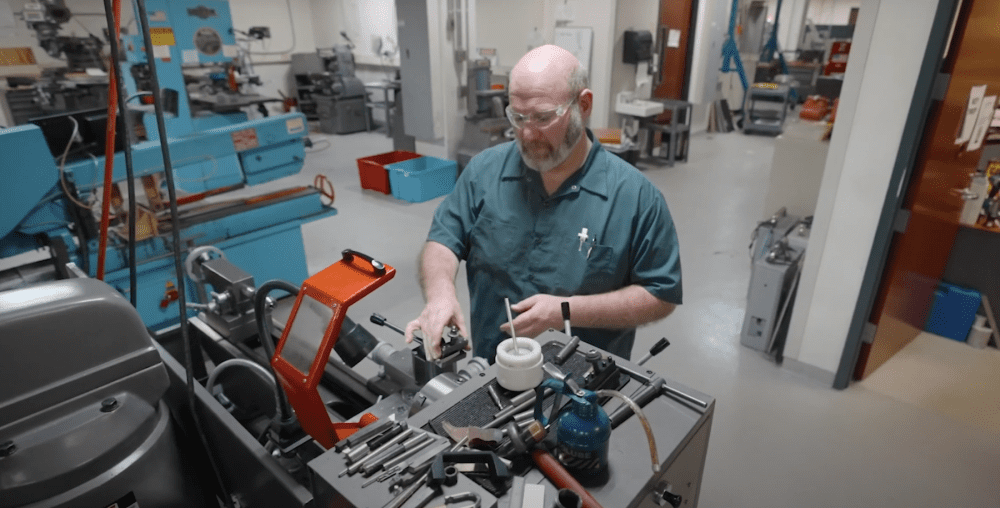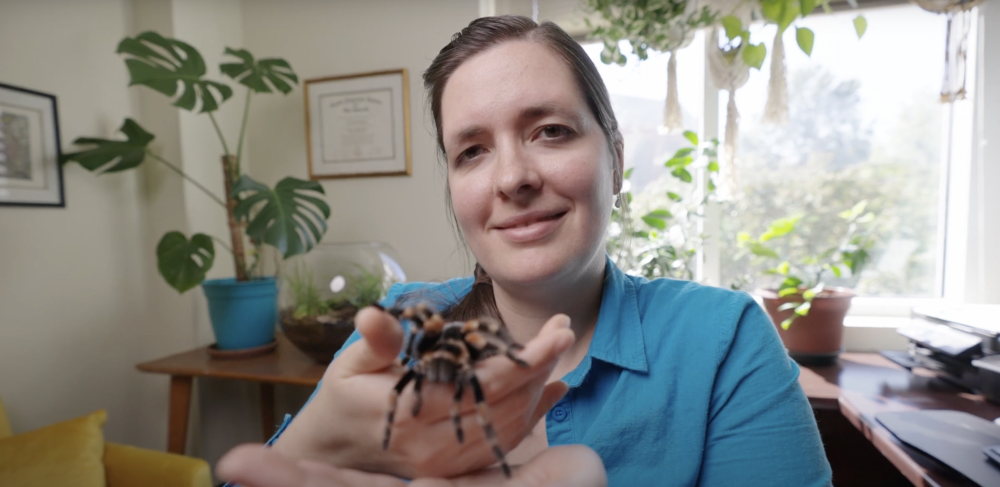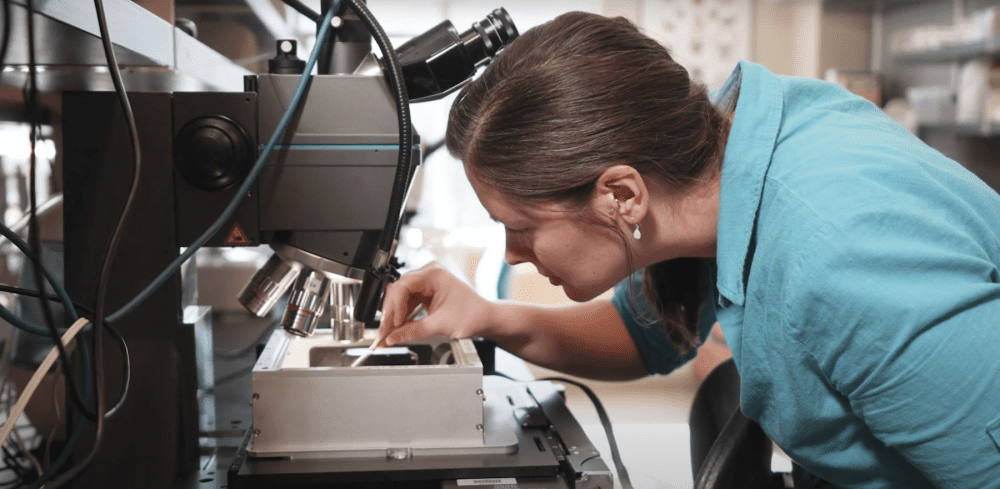“It can’t be done” isn’t in the Niner Engineer playbook
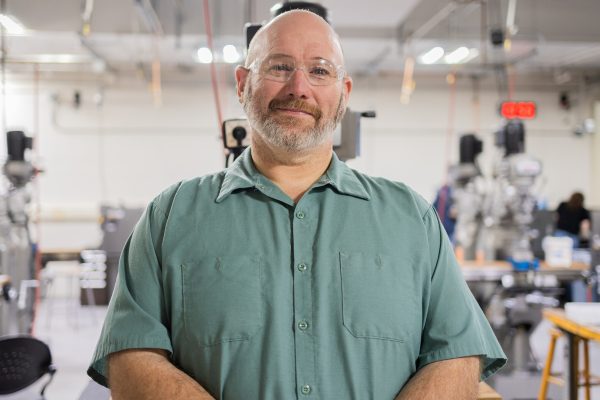
Sarah Stellwagen, assistant professor in the Department of Biological Sciences within the College of Science, had an issue. The microscopic spiderwebs she researches are best studied in their native environment—or at least under the right conditions, which include temperature and humidity. But it wasn’t easy to get accurate readings with her microscope in the lab, whose temperature is often stuck at around 70°F with humidity that can fluctuate dramatically depending on the weather. Transporting spiders from their home abroad to an environmentally sealed, climate-controlled lab in America was not an option. It felt like an insurmountable roadblock to the researcher.
At home one evening, Stellwagen was explaining these challenges to her husband, Artur Wolek, an assistant professor and researcher across UNC Charlotte’s campus in the William States Lee College of Engineering. Wolek suggested she connect with two fellow Niner Engineers in his network, Joe Dalton, lab manager, and Brian Dutterer, technology applications manager. “They love to tackle problems, design ideas, and build solutions,” he explained.
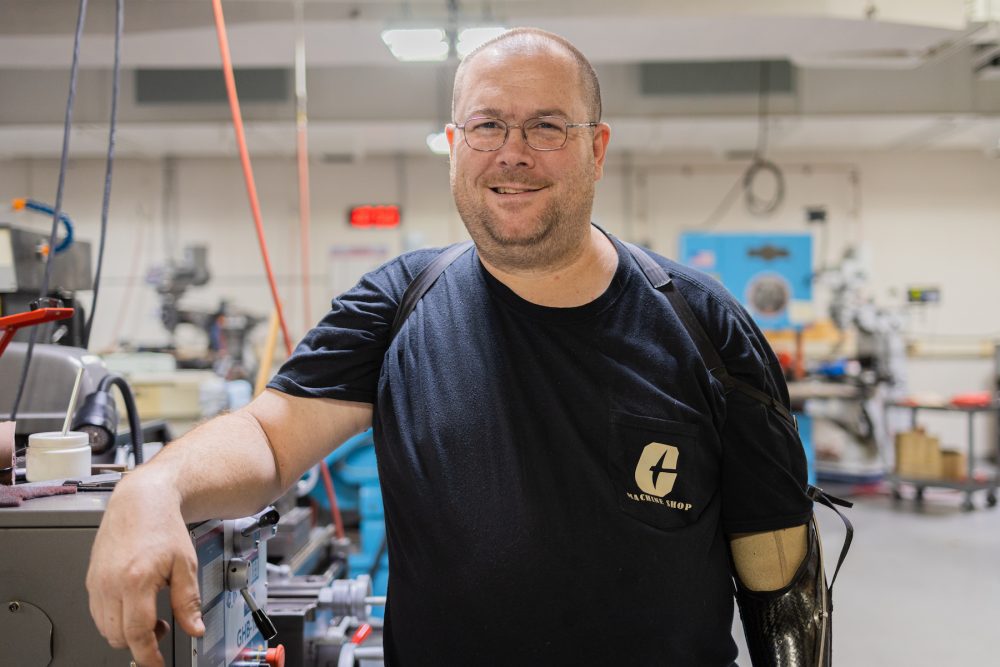
Sarah connected with the pair and, a year later, she was studying exotic spider silks—collecting data using their native environmental conditions. This is because Dalton and Dutterer collaborated to develop and build a customized climate-controlled, sealed-environment microscope chamber the size of a tissue box. She can now regulate temperature and humidity to mimic the natural habitat of any species, allowing accurate data collection that reflects the true material properties of spider silks.
The mobile lab, the only one like it in the world, can be transported and used elsewhere. “The microscope can be supported by a table—even one at a remote basecamp in the middle of South America,” said Dalton. “Unpack the microscope, turn on the power (often from a mobile generator), and for specimens that cannot be taken back to Charlotte, Sarah has her own environmentally accurate lab. She adjusts the chamber’s internal temp and humidity to mimic the natural surroundings.”
But can a mobile lab offer the integrity and accuracy of her Charlotte lab? “The chamber includes something highly important called an integrated force transducer,” explained Dalton. “It allows Sarah to take very tiny, very sensitive measurements and increases the reliability and consistency between measurements, while also increasing repeatability.“
Dalton and Dutterer’s innovation allows Stellwagen to take the spider to her lab or vice versa, allowing a uniquely flexible microscopy system. The Niner Engineer pair agree on their assessment of the project. “We love hearing it can’t be done—that just makes it a challenge for us!”
